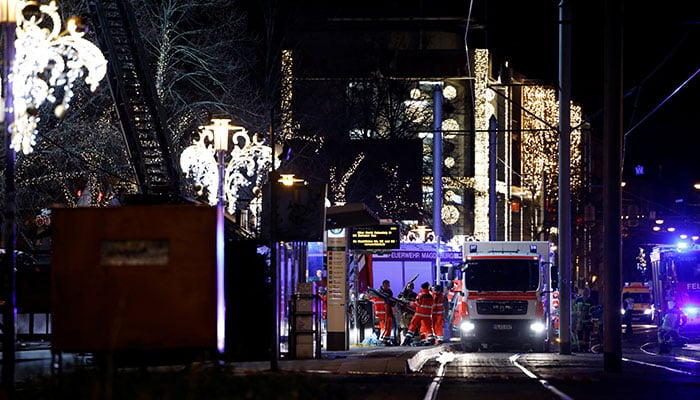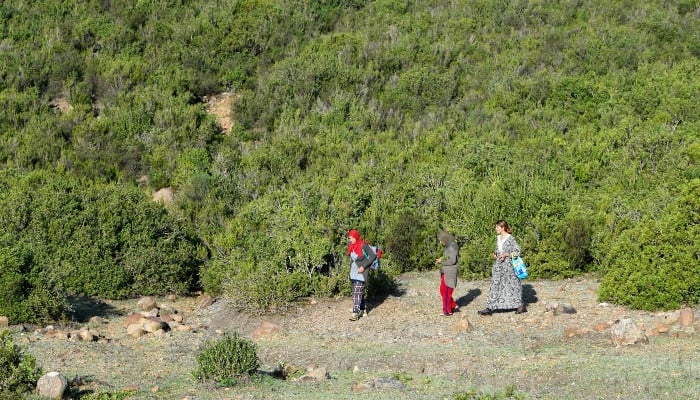Travel
Mothers in prison
字号+ Author:Smart News Source:Sports 2025-01-13 08:55:34 I want to comment(0)
INCARCERATED mothers constitute a rapidly increasing segment of the prison population in Punjab. According to data released by Punjab Prisons, as of last month, the total number of female prisoners stood at 1,218. Of these, 137 are mothers with children and 104 are under trial. The total number of children living in prisons with jailed mothers is 159, including 68 boys and 91 girls. In 2022, the total number of mothers in Punjab’s prisons was 83. This data shows an increase of 65 per cent in their population across the province from 2022 to 2024. Children living with incarcerated parents, as well as those left behind when a parent is imprisoned, are among the most at-risk populations. They face social stigma and isolation, with a long-lasting impact on their intellectual growth and emotional development. Despite these challenges, they are not recognised as a vulnerable group and no special initiatives are being initiated to protect their best interests. Existing prison facilities across Pakistan were designed primarily for male prisoners during the colonial era. However, the number of female prisoners has increased over the years. Prison facilities do not cater to the gender-specific needs of female prisoners, such as pregnancy. Additionally, women are the primary caregivers of children in Pakistani society. Prisons lack the necessary capacity and mechanisms for the adequate educational, health, and psychological development of children. The primary legislation governing the Punjab prison system includes the Prisons Act of 1894, the Prisoners Act of 1900, and the Pakistan Prison Rules of 1978. The PPR contains specific provisions for the management of female prisoners. Unfortunately, these laws are rooted in colonial-era practices and a retributive approach, lacking sufficient focus on the rehabilitation and welfare of incarcerated mothers and their innocent children. The laws are not in line with Pakistan’s international legal obligations. The ‘UN Rules for the Treatment of Women Prisoners and Non-custodial Measures for Women Offenders’, also called the ‘Bangkok Rules’ are the universally recognised standards regarding the treatment of female offenders and prisoners, and were adopted by the UN in 2010. Rule 326 of the PRP allows women prisoners to keep their children with them in jail until they turn six. However, as per Rule 52 (1) of the Bangkok Rules, the decision regarding when a child is to be separated from its mother is to be based on individual assessments and the child’s best interests. The UN Convention on the Rights of the Child was ratified by Pakistan in 1990. Article 3(1) of the convention provides that “in all actions concerning children, whether undertaken by public or private social welfare institutions, courts of law, administrative authorities or legislative bodies, the best interests of the child shall be a primary consideration”. Children living with parents in jail face isolation. The Committee on the Rights of the Child in 2011 emphasised that in “sentencing parent(s) and primary caregivers, non-custodial sentences should … be issued, in lieu of custodial sentences, including in the pre-trial and trial phase. Alternatives to detention should be made available … with full consideration of the likely impacts of different sentences on the best interests of the affected child(ren)”. Therefore, courts should collect data on the number of dependent children of parents involved in legal conflicts and then take a balanced view, weighing the best interests of the affected children against the severity of the parent’s offence. Additionally, it is crucial to ensure that “non-custodial sentences for pregnant women and women with dependent children shall be preferred” for non- violent crimes, in line with Rule 64 of the Bangkok Rules. Punjab has an effective Probation and Parole Service. Several strategic initiatives have been taken to enhance the effectiveness of the service. This includes the Offender Management Information System to centralise and streamline the tracking of offender information. Release on bail at the pre-trial stage along with probation and parole should be utilised as alternatives to imprisonment. The Punjab Legal Aid Agency has also been established under the Punjab Legal Aid Act, 2018. However, it is not effectively working for the protection of the rights of prisoners. Punjab should establish a provincial human rights commission similar to Sindh’s, which is empowered by the Sindh Protection of Human Rights Act, 2011. The Sindh Human Rights Commission raises awareness, inspects jails, recommends improvements, and investigates human rights violations by public servants. A similar body in Punjab would enhance prison conditions.
1.This site adheres to industry standards, and any reposted articles will clearly indicate the author and source;
 Related Articles
Related Articles-
Marseille down Lens to stay in touch with Ligue 1 leaders
2025-01-13 07:58
-
Meghan Markle’s Instagram sparks ‘cash grab’ claims
2025-01-13 07:25
-
Ed Sheeran joins Daniel Craig at JK Rowling's glitzy hogmanay bash
2025-01-13 07:13
-
Kate Middleton’s prison visit that shocked everyone
2025-01-13 06:22
 User Reviews
User Reviews Recommended Reads
Recommended Reads Hot Information
Hot Information- FBR introduces ePayment 2.0
- Squid Game Season 3: First look unveils eerie new addition to cast
- WME denies Justin Baldoni's departure was due to Blake and Ryan’s request
- Nicole Scherzinger, Thom Evans jump into New Year with bold moves
- Gurbaz, Omarzai propel Afghanistan to ODI series win over Bangladesh
- Billie Eilish recalls 'self-harming' phase of her life: 'I felt like I...'
- King Charles ‘worried’ for Prince Harry as Andrew threatens new trouble
- Shafqat Ali Khan appointed new MoFA spokesperson
- Reforms committee to be set up to address inmate welfare, overcrowding in KP jails
 Abont US
Abont US
Follow our WhatasApp account to stay updated with the latest exciting content













